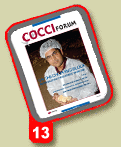
Other articles
in this issue
Free bird
For as long as I can
remember, the word
freedom has been
associated with birds.
There's the old expression
"free as a bird."
The bald eagle is, of
course, a symbol of
freedom. And who
didn't spend time in
college dancing to
Lynyrd Skynyrd's "Free
Bird"?
In today's poultry industry, the words "free" and
"bird" are also being heard more often, but they're usually
preceded by the word "antibiotic."
The practice of producing antibiotic-free birds used to
be limited to niche marketers that were more concerned
about meeting the needs of a certain consumer than
feeding the masses with a low-cost, nutritious, healthy
product that virtually everyone could afford.
But today's consumer is changing - and the statistics
are difficult to ignore:
- Organic poultry in the United States, which must be
raised without antibiotics to carry an "organic" label,
saw an explosive 1,000% increase in production
between 1997 and 2003.
- Poultry is the fastest growing meat product in the U.S.
organic market, with a market size estimated to be
around $46 million and annual growth estimated to be
33% through 2008.
- Whole Foods Market, one of the world's largest organic
foods retailers, found in a 2004 survey that more
people are eating organic products primarily because
organic foods are considered to be better for their
health and for the environment.

Whether you support this trend or agree with consumers
is not the issue. The fact is, this is the direction
of the new poultry industry - and it's not only for niche
marketers.
Draper Valley Farms is Washington State - a company
that places 600,000 birds a week - recently decided
to pull all in-feed antibiotics, including ionophores, from
its commercial broilers after having outstanding success
with a similar program in its "antibiotic-free" line. (See
their story beginning on page 2.) They didn't do it
overnight, but they say they learned valuable lessons
about poultry production from their antibiotic-free line.
As Draper Valley's production veterinarian, Dr. Mueez
Ahmad tells us, "When you go antibiotic-free, you can't
use drugs and Band-Aids to cover up our mistakes. That
experience, I think, has had a profound effect on the
management of our commercial birds as well."
Draper Valley's nutritionists are also enjoying their
newfound freedom. Now they "can make changes in the
needs of the birds, without having to work around the
medication program," Ahmad says. Having fewer medications
to track and flush from the system has also made
life easier at the feed mill.
In the world of politics, we're frequently reminded
that "freedom has its cost." In the world of poultry, freedom
can also be good for business. We hope this issue
of CocciForum will help you capitalize on this trend.

Director, Global Technical Services
Poultry Business Unit
Schering-Plough Animal Health
Source: Cocciforum, isuue 13






 © 2000 - 2021. Global Ag MediaNinguna parte de este sitio puede ser reproducida sin previa autorización.
© 2000 - 2021. Global Ag MediaNinguna parte de este sitio puede ser reproducida sin previa autorización.